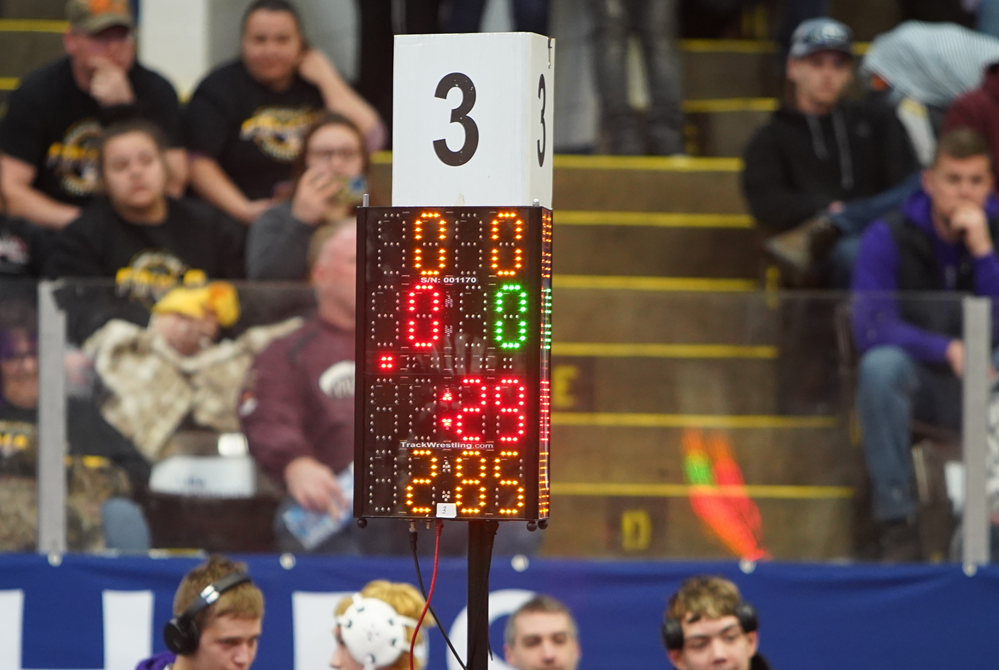
See the Whole Play
August 19, 2014
Here are a few more pearls of wisdom from the nation’s leading gathering of sports officials, these from Barry Mano, NASO president:
- “Incorrect no-calls are easier to explain than incorrect calls.”
- “Officials are to enforce, not appease.”
- “In spite of their criticisms, there is no sensible parent who would want their child to participate without officials.”

Be the Referee: Wrestling Tiebreakers
By
Paige Winne
MHSAA Marketing & Social Media Coordinator
January 30, 2024
Be The Referee is a series of short messages designed to help educate people on the rules of different sports, to help them better understand the art of officiating, and to recruit officials.
Below is this week's segment – Wrestling Tiebreakers - Listen
A wrestling dual is tied after 14 matches. What happens? How is a winner determined?
There are 17 possible criteria used to break ties, starting with advancing the team penalized the fewest number of team points for flagrant misconduct or unsportsmanlike conduct.
The 17th and final tie-breaker, if needed, is a simple coin flip.
But how often are these steps actually used? A regular-season dual meet last week went to the seventh tie-break. And in the 2017 Division 3 Finals, Richmond beat Dundee for the state championship by going to the eighth step in the tie-breaker procedure. Richmond had scored more total first points and was crowned the winner.
Previous Editions
Jan. 23: Wrestling Technology - Listen
Jan. 9: 3 Seconds - Listen
Dec. 19: Unsuspecting Hockey Hits - Listen
Dec. 12: No More One-And-Ones - Listen
Nov. 21: Football Finals Replay - Listen
Nov. 14: Volleyball Unplayable Areas - Listen
Nov. 7: Pass/Kick Off Crossbar - Listen
Oct. 31: Cross Country Interference - Listen
Oct. 24: Soccer Overtime - Listen
Oct. 17: Tennis Spin - Listen
Oct. 10: Blocked Kick - Listen
Oct. 3: Volleyball Double & Lift - Listen
Sept. 26: Registration Process - Listen
Sept. 20: Animal Interference - Listen
Sept. 13: Feet Rule on Soccer Throw-In - Listen
Sept. 6: Volleyball Jewelry - Listen
Aug. 30: Football Rules Similarities - Listen
Aug. 23: Football Rules Differences - Listen

